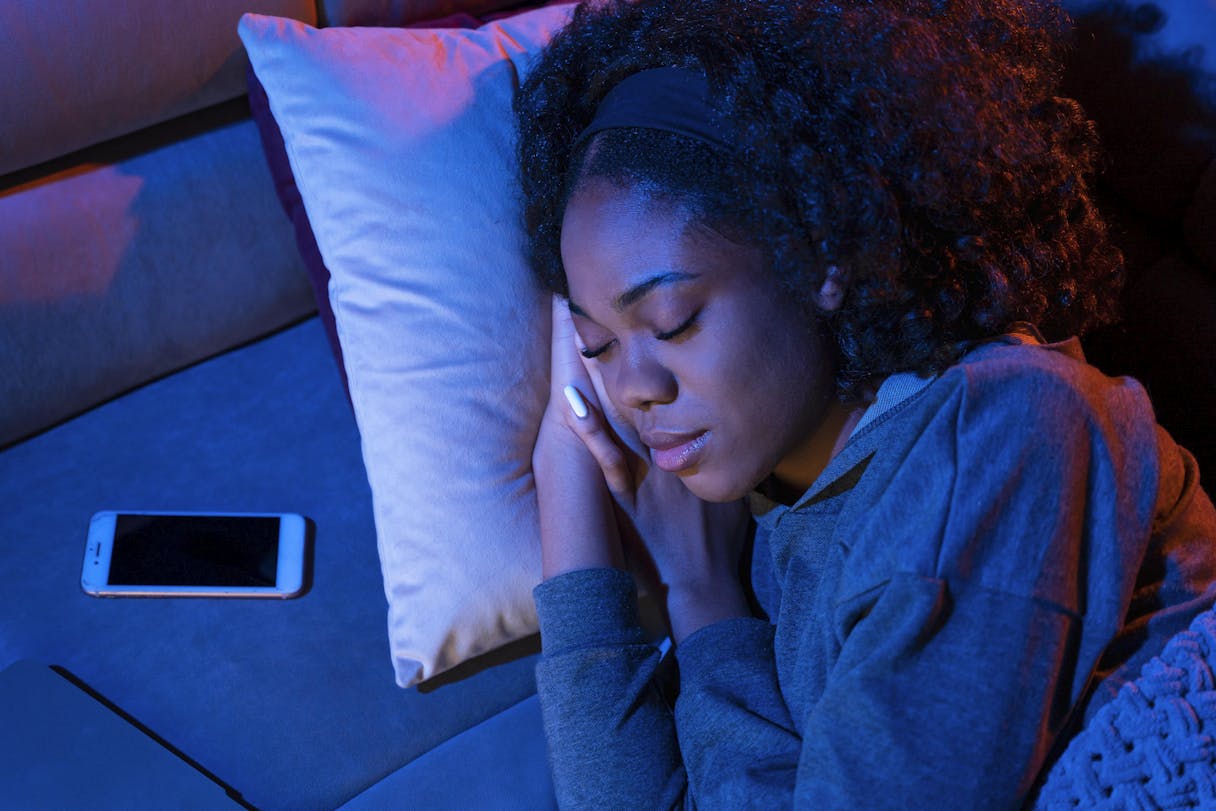You already know a good night's sleep is essential to good health, but did you know that sleep quality and mental health are also closely related?
In recent years, scientific studies have revealed that lack of sleep or poor sleep quality can lead to several issues such as mood swings, anxiety, depression, and many more. On the other hand, the right amount of restful sleep can significantly improve your mental health.
In this article, we explore the link between sleep quality and mental health, and provide tips to improving sleep so you can feel your best each new day.
Why sleep is vital for your mental health
Sleep plays a vital role in the proper functioning of our body and mind. When you sleep, your brain processes the events of the day, and your body absorbs essential nutrients so it can rejuvenate.
However, a lack of sleep can prevent your brain cells from repairing themselves and decrease the production of hormones that your body needs to function correctly. This can lead to a host of mental challenges. With chronic sleep deprivation, the likelihood of developing long-term mental health problems also increases significantly.
Scientific insights on sleep and the brain
Ever wonder why a bad night's sleep leaves you feeling grumpy? Turns out, it's not just your imagination. Lack of sleep throws off the delicate dance of brain chemicals called neurotransmitters, those tiny messengers that govern our mood, emotions, and even our drive.
Serotonin, the "happy hormone," takes a hit when we're sleep-deprived, leading to irritability, anxiety, and even depression.
Dopamine, the pleasure and motivation booster, gets sluggish too, leaving us feeling uninspired and uninterested.
But here's the good news: sleep acts as a brain recharge, resetting those neurotransmitters back in place. A good night's sleep lifts your serotonin levels, boosting your mood. Dopamine gets a kickstart, rekindling your motivation, creativity, and making you feel like you can tackle anything.
Common sleep disorders and their impact on mental health
Several sleep disorders can negatively impact your mental health. Let's have a brief look at two of the most common sleep disorders and how they impact people’s mental health.
Insomnia and depression
Insomnia is a widespread sleep disorder that affects almost 30% of all Americans. People with insomnia have trouble falling asleep, staying asleep, or both, which may lead to distress, daytime drowsiness, irritability, anxiety, and depression.
Links between sleep and depression are strong. About three-quarters of depressed patients have insomnia symptoms, and hypersomnia is present in about 40% of young depressed adults and 10% of older patients.
Sleep apnea and anxiety
Sleep apnea is another common sleep disorder, which is known to disrupt normal sleep cycles and affect mood regulation. People with sleep apnea often awaken frequently during the night, leading to daytime sleepiness, irritability, and impaired cognitive function.
The condition has been linked to depression, anxiety, and suicidal thoughts in some cases. Sleep apnea can be treated with various techniques, including positive airway pressure therapy, lifestyle changes, and surgery.
Tips to improve sleep for better mental health
Practicing good sleep hygiene is one of the best things you can do to get consistent, restful sleeps. This entails developing healthy habits including:
- Stick to a consistent sleep schedule: Go to bed and wake up at the same time daily, even on weekends.
- Create a serene sleep environment: Keep your bedroom quiet, dark, and at a comfortable temperature.
- Banish electronics: Remove TVs, computers, and smartphones from the bedroom.
- Watch your intake: Avoid large meals, caffeine, and alcohol before bedtime.
- Stay active: Incorporate daily exercise to promote easier sleep onset at night.
When to seek professional help
In some cases, improving sleep quality may not be enough, in which case you should seek professional help. A therapist can you find a professional. A help may be necessary. If you experience chronic sleep difficulties, develop any sleep disorders, or experience mental health problems, don't hesitate to seek the help of a licensed healthcare professional, such as a doctor or counselor.
Image by Freepik

Your Comprehensive Guide to Melatonin: Sleep and Mental Health Benefits

Unveiling the Benefits of Weighted Blankets

What is Cognitive Behavioral Therapy for Insomnia?

Call 911 if you’re having a
mental health emergency
Text Home to 741-741 if you're in emotional
distress and need immediate support
Call or text 988 Suicide &
Crisis Lifeline. Chat service
is available at 988lifeline.org.